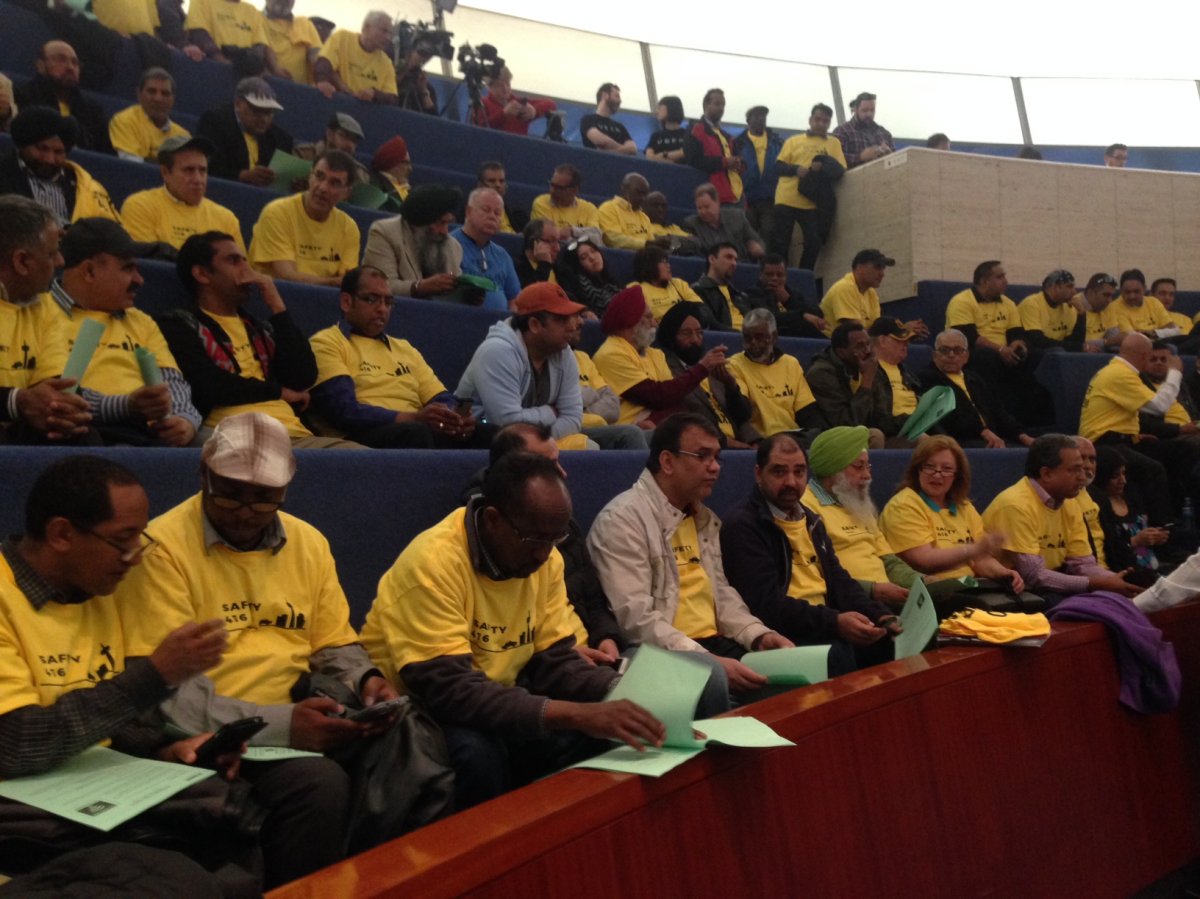Recent data from the city of Toronto’s lobbyist registry reveals ride-sharing company Uber tried to contact city staff and elected officials almost twice as much as the taxi industry and its supporters.

Between Jan. 1, 2015 and April 20, 2016, lobbyists and staff for the San Francisco-based company reached out to the city at least 2,058 times by e-mail, letter, in-person, by phone or text messages. In that same period taxi industry representatives and supporters did so only 1,125 times.
The frequency of contacts from both sides peaked around council meetings.
READ MORE: Uber versus taxis: Who’s lobbying whom at Toronto city hall
The large number of contacts on Sept. 29 represents mostly emails sent by Joshua Wozenilek, CEO of Dijoto Inc.
Though the company — which provides driver cashiering and client invoicing software for traditional taxi companies — was not expressly lobbying for the industry, they were supportive of policy decisions favourable for the incumbent.
“Our recent lobbying efforts were focused on educating city councillors that UberX provides the same service as taxi companies and that they follow the same fundamental business model,” said Wozenilek.
“We sought to ensure that they were not fooled by Uber’s politically misleading terms, such as ‘ridesharing,’ which actually means ‘car pooling.'”
Click here for interactive data

Get daily National news
The vast majority of contacts from Uber were from General Manager Ian Black. He reached out to city staff and councillors at least 1,731 times — more than the total number of times attempted by taxi industry lobbyists and supporters combined.
The company also relied on four lobbyists from StrategyCorp Inc.: Stephen Adler, Emily Naddaf and principals John Duffy and John Matheson.
Amarjeet Chhabra, Executive Director of the iTaxiworkers Association, was the most aggressive lobbyist for the taxi industry.
He contacted city staff and met elected officials 268 times, while the industry also relied on external government relations/PR firms such as Sussex Strategy Group and Navigator Inc.
Click here for interactive data
As for who received the most number of contacts from Uber and their lobbyists, Luke Robertson, Senior Adviser for Council and Stakeholder Relations for Mayor John Tory, was approached by the company and their government relations advisers at least 70 times. Following him was Tracey Cook, Executive Director of Municipal Licensing and Standards, who oversaw the initial draft regulations for ground transportation in the city.
Councillor Kristyn Wong-Tam was the most targeted councillor with at least 32 contacts. The left-leaning Wong-Tam represents Ward 27, Toronto Centre-Rosedale, located in the heart of downtown Toronto where many of Uber’s 15,000 driver – partners transport passengers.
It’s also an area of the city with a high percentage of young people, aged 25 to 34, who are more likely to rely on the ride-sharing service.
Click here for interactive data
As for the lobbying efforts of the taxi industry and its supporters, emails, phone calls and requests for in-person meetings were mostly directed at councillors who have been sympathetic to their cause and vocal of the need to govern both Uber and taxis under a common regulatory framework.
City Councillor Jim Karygiannis, for example, was contacted at least 67 times by the industry.
“Their first wish was to get rid of Uber and make sure there was a level playing field,” said Karygiannis. “Uber requested a meeting with me. Once they learned my position they left me alone.”
Councillors Janet Davis and Giorgio Mammoliti all received a high number of emails and phone calls.
All three have been outspoken in their opposition to the UberX model, which they say worsens employment precarity, threatens the livelihood of an established industry and is unsafe for passengers.












Comments